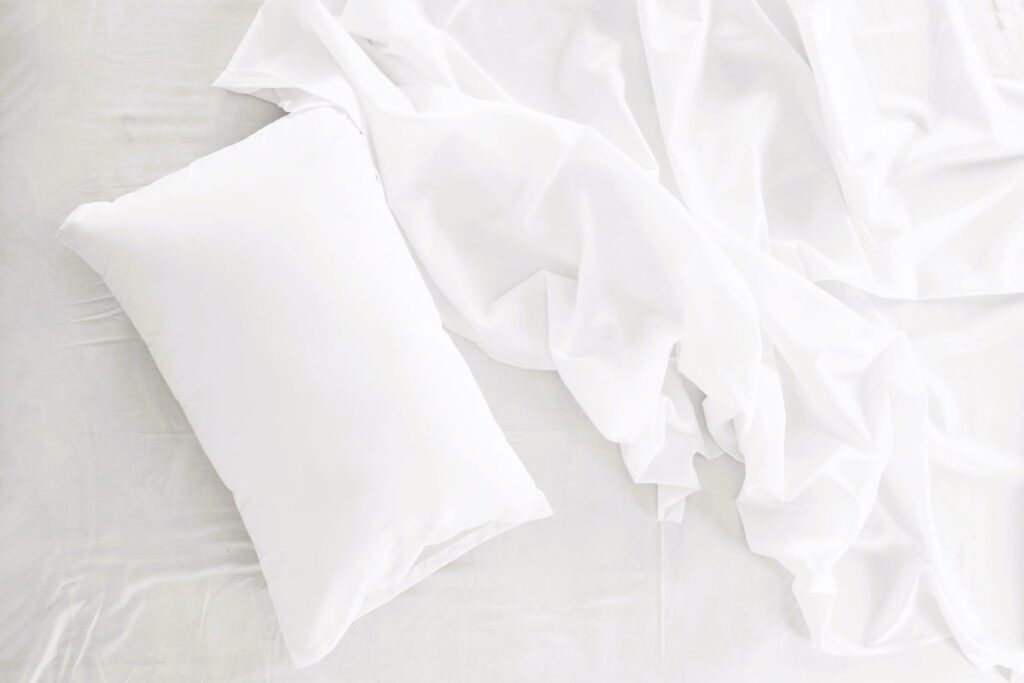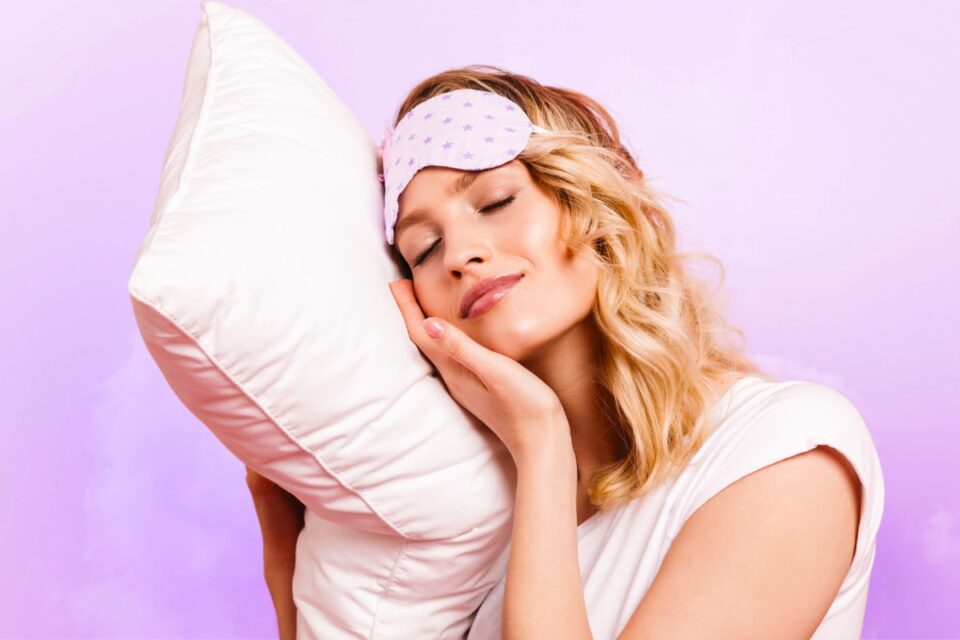Sleep Quality is crucial for overall well-being, significantly influencing various aspects of our lives. As our understanding of the vital link between sleep and general health, as well as the pursuit of sleep better, deepens, awareness of the importance of a good night’s rest is steadily growing in different areas. From business and sports to art, health, and education, there is a growing recognition of the pivotal role optimal sleep plays in improving performance, stimulating creativity, and supporting both physical and mental wellness.
In the upcoming sections, we will explore the intricate relationship between sleep and its impact on various aspects of health and how we do sleep better. We’ll highlight the wide-ranging effects that a restful night can have on daily performance, energy levels, and overall quality of life.
Table of Contents
1. Sleep and its Impact on General Health
Understanding how sleep patterns affect the quality of life is essential. Numerous studies, including research conducted by renowned institutions such as the National Sleep Foundation and publications like the Journal of Sleep Research, consistently provide evidence of the profound impact of sleep on both physical and mental well-being.
Additionally, research conducted by the National Sleep Foundation emphasizes the direct correlation between consistent, quality sleep and enhanced cognitive function. Adequate sleep has been shown to improve memory retention, problem-solving skills, and overall mental alertness. (Source: National Sleep Foundation).
EARLY TO BED AND EARLY TO RISE, MAKES A MAN HEALTHY, WEALTHY, AND WISE
Moreover, studies published in the Journal of Sleep Research highlight the critical role of sleep in physical health. Insufficient sleep has been linked to a higher risk of chronic conditions such as cardiovascular disease, obesity, and diabetes.

2. Sleep Duration and Quality
There are globally accepted guidelines for recommended sleep durations across various age groups, as established by reputable health organizations such as the National Sleep Foundation and the World Health Organization. These guidelines serve as a foundation for promoting overall health and well-being, with specific emphasis on the crucial role that achieving high-quality sleep plays in maintaining optimal physical and mental health.
According to the National Sleep Foundation, the recommended sleep durations are as follows:
Recommended Daily Sleep Durations:
- Newborns (0-3 months): 14-17 hours per day
- Infants (4-11 months): 12-15 hours per day
- Toddlers (1-2 years): 11-14 hours per day
- Preschoolers (3-5 years): 10-13 hours per day
- School-age children (6-13 years): 9-11 hours per day
- Teenagers (14-17 years): 8-10 hours per day
- Young adults (18-25 years): 7-9 hours per day
- Adults (26-64 years): 7-9 hours per day
- Older adults (65+ years): 7-8 hours per day
Consequently, these recommendations, supported by extensive research and health expertise, underscore the vital role of adequate and quality sleep in promoting overall health and well-being.
SLEEP IS THE BEST MEDITATION

3. Attention to Sleep Hygiene
Pre-Sleep Rituals:
Establishing an effective pre-sleep routine is pivotal for a restful night. Therefore, consider incorporating the following elements into your pre-sleep rituals for optimal sleep hygiene:
- Relaxation Techniques: Engage in calming activities such as reading a book, practicing gentle yoga, or listening to soothing music. These activities help signal to your body that it’s time to wind down. For further insights and a deeper exploration of this topic, check out our related article at [Best Stress Management Techniques for Sleep].
- Consistent Bedtime: Maintain a consistent bedtime schedule. Going to bed and waking up at the same time each day helps regulate your body’s internal clock, promoting better sleep quality.
Creating a Serene Sleep Environment:
A serene sleep environment is essential for enhancing the quality of your rest. Consider these tips:
- Optimal Temperature: Keep your bedroom cool, ideally between 60-67 degrees Fahrenheit (15-20 degrees Celsius). A slightly cooler environment is generally conducive to sleep better.
- Comfortable Bedding: Invest in a comfortable mattress and pillows that provide proper support. The right bedding can significantly contribute to a more comfortable and restful sleep.
- Dim Lighting: Use dim, soft lighting in the hour leading up to bedtime. This helps signal to your body that it’s time to prepare for sleep.
By incorporating these pre-sleep rituals and optimizing your sleep environment, you can foster a more peaceful and rejuvenating night’s sleep.
4. Avoiding Technological Devices
Impact of Screens on Sleep:
Scientific studies, including those published in the Journal of Applied Physiology and the Journal of Clinical Sleep Medicine, affirm the detrimental effects of electronic devices on sleep quality and duration.
Strategies for Screen Time Limitation:
To counteract these effects, incorporate these strategies for a tech-free sleep sanctuary:
- Screen Dimming Applications: Use features like “Night Shift” (Apple) or “Night Mode” (Android) to reduce blue light emission, a known disruptor of melatonin production, by dimming screens at least 30 minutes before bedtime.
- Establishing Electronic Curfews: Set specific times to halt device use before sleep, signaling to your body that it’s time to unwind for a restful night.
- Blue Light Blocking Glasses: Consider wearing these glasses, particularly if evening screen time is unavoidable, as they filter out the disruptive blue light, fostering a melatonin-friendly environment.
By understanding the scientific evidence on screen impacts and applying these strategies, you can create a tech-free sleep haven conducive to a more rejuvenating night’s rest.
5. Regular Exercise
Exercise’s Role in Improving Sleep Quality:
Scientific studies, including research featured in the American Journal of Lifestyle Medicine and Sleep Medicine Reviews, consistently highlight the positive correlation between regular exercise and improved sleep quality.
IF YOU WANT TO BE THE BEST VERSION OF YOURSELF, GET 7 TO 9 HOURS OF SLEEP EVERY NIGHT
Strategies for Optimizing Exercise Benefits:
To maximize the effectiveness of exercise for better sleep, consider the following strategies:
- Timing Matters: Engage in moderate aerobic exercise, such as walking or cycling, at least three hours before bedtime. This allows your body temperature to cool down, facilitating the natural transition into sleep.
- Incorporate Relaxation Techniques: Combine your exercise routine with relaxation practices, such as stretching or yoga, to promote a calm state before bedtime.
- Consistency is Key: Establish a regular exercise routine and adhere to a consistent schedule. Regularity reinforces your body’s internal clock, aiding in the synchronization of your sleep-wake cycle.
By understanding the scientific evidence and implementing these strategies, you can harness the full potential of regular exercise to enhance the quality of your sleep.

6. Balanced Nutrition
Scientific studies, including research from the Journal of Sleep Research and Nutrition Reviews, illuminate the intricate relationship between nutrition and sleep quality. A balanced diet plays a crucial role in promoting restful sleep.
Understanding the Link Between Nutrition and Sleep:
Sleep-Inducing Foods:
Certain foods contain compounds that support better sleep. Examples include:
- Tryptophan-Rich Foods (Turkey, chicken, nuts, and seeds are high in tryptophan, an amino acid precursor to serotonin and melatonin, hormones that regulate sleep.
- Magnesium-Rich Foods: Leafy greens, nuts, and whole grains provide magnesium, known to relax muscles and promote a sense of calm conducive to sleep.
- Melatonin-Boosting Foods: Tart cherries and kiwi are natural sources of melatonin, aiding in regulating the sleep-wake cycle.
Importance of Avoiding Heavy Meals:
Consuming heavy meals close to bedtime can disrupt sleep. Examples of heavy meals to avoid include fatty foods, spicy dishes, and large portions.
Timing Recommendations:
It is advisable to have your last meal at least two to three hours before bedtime. This allows for proper digestion and minimizes the risk of discomfort, contributing to a more restful night’s sleep.
SLEEP IS THE SINGLE MOST EFFECTIVE THING WE CAN DO TO RESET OUR BRAIN AND BODY HEALTH EACH DAY
7. Stress Management:
Unveiling the Scientific Connection Between Stress and Sleep:
Research, encompassing studies from the Journal of Psychosomatic Research and Sleep Medicine Reviews, underscores the intricate relationship between stress and sleep quality. Chronic stress can significantly disrupt the sleep-wake cycle, impacting the duration and depth of restorative sleep.
To experience deep breathing techniques firsthand, try our “Breatheasy – Breathing App.” It’s designed to guide you through relaxing breathwork routines that ease stress and enhance your sleep quality. Click here to try it now.
Effective Relaxation Techniques:
To mitigate the adverse effects of stress on sleep, consider incorporating the following relaxation techniques into your routine:
- Deep Breathing Exercises: Use deep breathing exercises to slow the heart rate and activate the body’s relaxation response, which can ease stress and improve sleep quality.
- Mindfulness Meditation: Engage in mindfulness meditation to cultivate awareness and alleviate stress, promoting a tranquil state conducive to better sleep.
- Progressive Muscle Relaxation: Practice progressive muscle relaxation to release tension from the body, allowing for physical and mental relaxation.
- Calming Activities: Explore calming activities such as reading, listening to soothing music, or taking a warm bath before bedtime to unwind and signal to your body that it’s time to relax.
By understanding the scientific link between stress and sleep and integrating these relaxation techniques, you can effectively manage stress and enhance the quality of your sleep.

8. Keeping a Sleep Journal
Monitoring Your Sleep Habits:
A sleep journal serves as a valuable tool for tracking and analyzing your sleep habits, providing insights into patterns and potential areas for improvement. Whether through a traditional pen-and-paper journal or a technologically advanced sleep tracking device, the act of monitoring your sleep can offer valuable data.
Utilizing Technology for Sleep Monitoring:
Consider incorporating technological devices such as fitness trackers or dedicated sleep apps to monitor your sleep patterns. These tools can provide detailed information on factors like sleep duration, sleep cycles, and disruptions. Alternatively, the classic method of maintaining a sleep journal, where you manually record bedtime routines and sleep quality, remains a effective and accessible option.
By consistently monitoring your sleep habits, you gain a clearer understanding of your sleep patterns, enabling informed adjustments to your sleep routine for better overall sleep quality
9. Professional Assistance
Seeking Help for Sleep Issues:
When faced with persistent sleep problems, consider seeking professional help in addressing and overcoming sleep-related challenges. There are multiple ways to deal with sleep problems, such as seeking help from sleep experts or considering the services of sleep clinics. With professional assistance, one can identify and treat any underlying sleep disorders, which can lead to personalized solutions for achieving better sleep and overall health.
Conclusion:
In the quest for better sleep, it’s never too late to make positive lifestyle changes. The importance of sleep, recognized by the scientific community, permeates every facet of our lives. Understanding the impact of quality sleep on overall well-being underscores the significance of prioritizing it in our daily routines.
Small adjustments, from maintaining a sleep journal to adopting relaxation techniques, contribute to the improvement of sleep quality. Embracing these changes is akin to investing in a healthier, more rejuvenating life. The pervasive influence of quality sleep extends across diverse domains, from business to sports, art, health, and education. As science unravels the intricate relationship between sleep and general health, it becomes increasingly evident that fostering a robust sleep routine is not just beneficial but essential.
Start your journey toward better sleep, and witness how these small changes can yield profound improvements. Remember, the popularity of sleep is not just a trend; it’s a fundamental element woven into the fabric of a fulfilling and balanced life.

